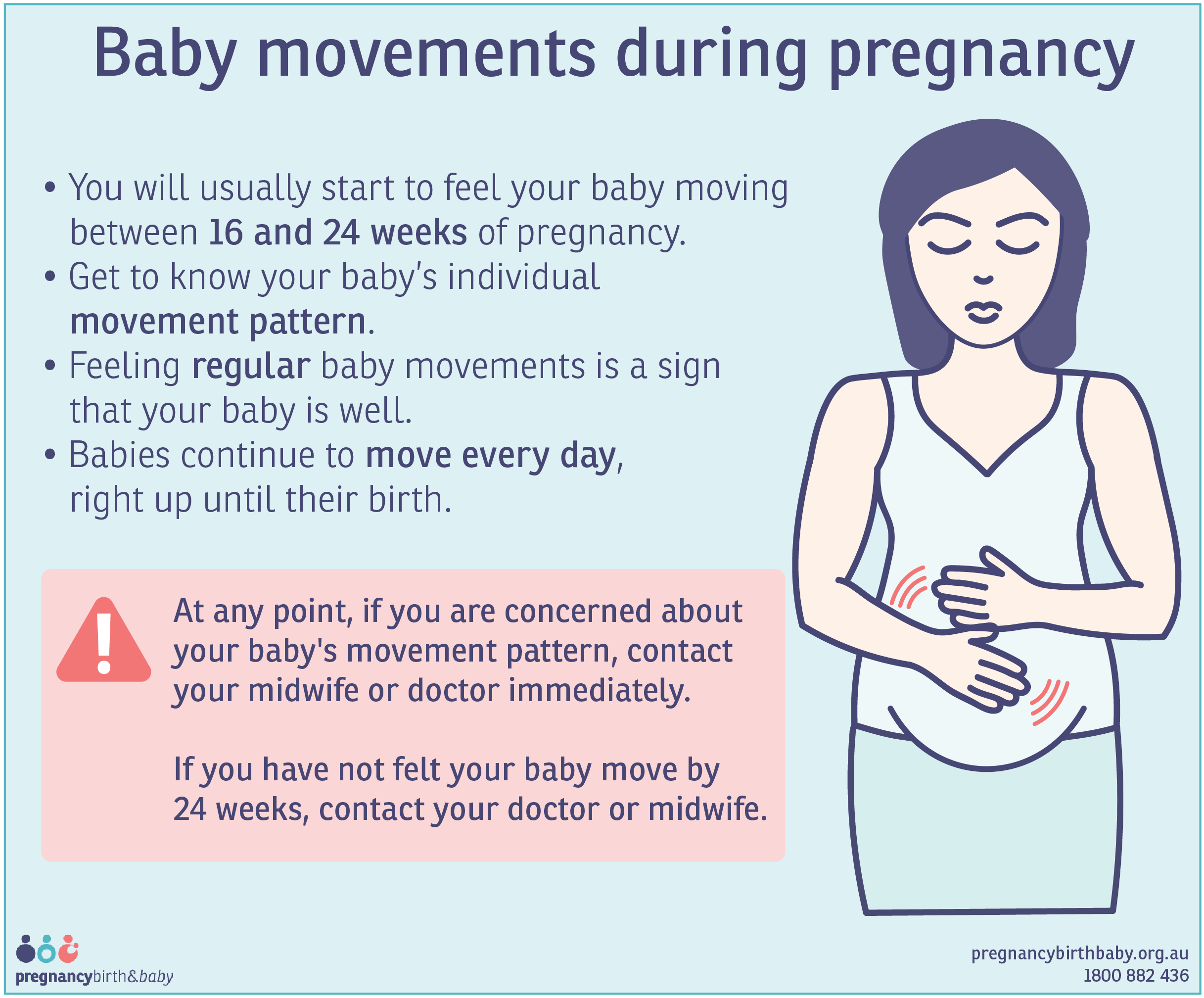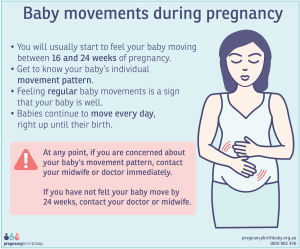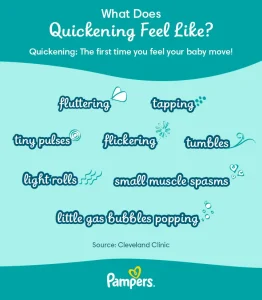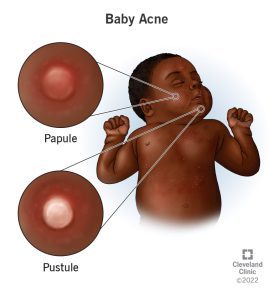When do you start feeling baby move, usually around 18-25 weeks of pregnancy. During pregnancy, one of the most exciting moments for expectant mothers is feeling their baby move.
This magical milestone is known as “quickening. ” While each pregnancy is unique, most women start feeling the baby move between 18 to 25 weeks. However, this timeline can vary depending on factors such as the mother’s body shape, position of the placenta, and whether or not she has been pregnant before.
Feeling those first gentle flutters or tiny kicks is an incredible bonding experience for the mother-to-be. As the pregnancy progresses, these movements will become more pronounced and frequent, bringing joy and wonder to the expecting parents.
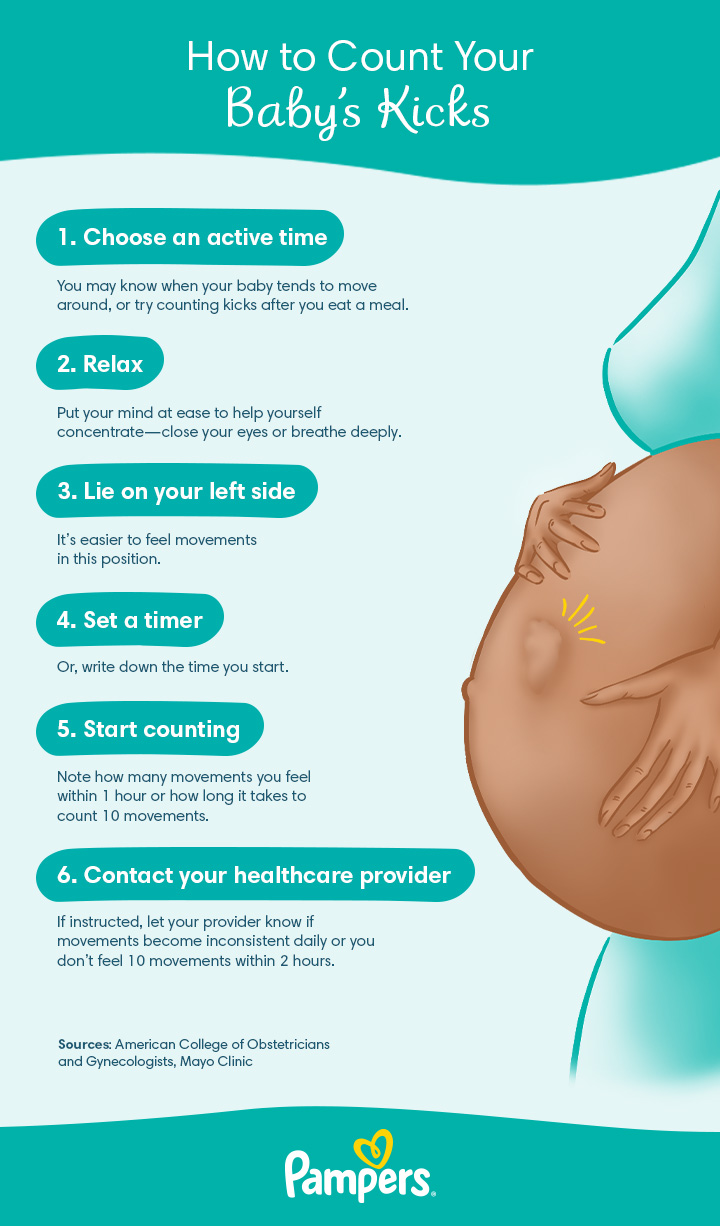
The Science Behind Fetal Movement
Fetal movement can usually be felt around 18-25 weeks as the baby grows and starts moving more. It’s normal to begin sensing these movements in the second trimester, with first-time mothers typically feeling it later. The science behind fetal movement lies in the baby’s development of muscles and nerves, allowing for more noticeable movements as pregnancy progresses.
Feeling your baby move is an exciting milestone during pregnancy. It’s a reassuring sign of your baby’s growth and development. But have you ever wondered why and how these little kicks and rolls happen? In this article, we’ll delve into the science behind fetal movement, including the factors that influence when and how you start feeling your baby move.
The Development Of Fetal Movement, Start feeling baby move
The development of fetal movement begins early in pregnancy. Around week 8, tiny movements can be seen on ultrasound, although they may not be felt by the mother just yet. As the pregnancy progresses, the baby’s muscular and nervous systems continue to develop, allowing for more coordinated movements.
By around week 16 to 25, you may start to feel those first fluttery sensations known as “quickening.” These initial movements often feel like gentle flutters or bubbles in your abdomen. They can be easy to miss, especially if you’re a first-time mom or if you have an anterior placenta (a placenta positioned in front of the baby, cushioning their movements).
As the weeks go by, these gentle flutters turn into more pronounced kicks, punches, and rolls. By the third trimester, you’ll likely recognize a regular pattern of your baby’s movement, as their space becomes more limited. You may feel your baby move most often after meals or when you’re lying down and relaxed.
Factors Affecting Fetal Movement
Various factors can influence fetal movement patterns. Each baby has their own unique activity level, so don’t compare your experience to others. However, here are some common factors that can affect how and when you feel your baby move:
- Your Baby’s Position: The position of your baby inside the uterus can impact the intensity and location of their movements. As your baby grows, they have less space to move around, and you may feel more kicks and punches in specific areas, like the ribs or lower abdomen.
- Mother’s Activity Level: Your own activity level can affect your baby’s movements. It’s common for babies to be more active when you’re resting or lying down, as your movements are less likely to rock them to sleep.
Remember to consult your healthcare provider if you notice a significant decrease in your baby’s movement or if you have any concerns. They can provide guidance and perform necessary tests to ensure your baby’s well-being. Enjoy this special phase of pregnancy as you bond with your baby through their miraculous movements!
Early Sensations, Fluttering
One of the initial movements you may feel is the gentle sensation of fluttering.
Quickening
As your baby grows, you can expect to feel more defined movements, known as quickening.
Distinguishing Early Movements From Other Sensations
It’s essential to differentiate between early baby movements and other bodily sensations.
Mid-pregnancy Milestones
Around the middle of pregnancy, usually between 18 to 20 weeks, expectant mothers may start feeling their baby’s movements. This thrilling milestone, known as “quickening,” can range from fluttering sensations to more pronounced kicks and flutters, signifying a growing and active baby.
Increasing Frequency And Intensity Of Movements
During mid-pregnancy, you will experience an exciting milestone as the frequency and intensity of your baby’s movements increase. At around 18 to 20 weeks, you will start noticing those gentle flutters and tickles as your little one starts to stretch, wiggle, and kick inside your womb.
- Feeling your baby move is a significant reassurance that they are developing and growing healthily.
- Baby movements often feel like tiny butterflies or bubbles fluttering in your abdomen.
- Initially, baby movements may be sporadic and irregular, but as time goes on, they become more frequent and regular.
- Soon, you’ll be able to distinguish between kicks, punches, and rolls as your baby becomes more active inside you.
- The increased activity serves as a remarkable indication that your little one is ready to explore their surroundings and interact with the world.
Bonding Through Fetal Movements
One of the wonderful aspects of feeling your baby move during mid-pregnancy is the opportunity it provides for bonding. These precious movements pave the way for a deeper connection between you and your growing baby.
- With every flutter or kick, you’ll begin to develop a stronger sense of the tiny life that is growing within you.
- Feeling your baby’s movements creates an emotional bond, as you can start imagining their activity and personality.
- As you respond to your baby’s movements, whether through touch or talking, you are already fostering a loving connection that will continue to grow after birth.
- Take this time to savor the fluttering movements and cherish the unique bond you share with your unborn baby.
Late Pregnancy Shifts
Late Pregnancy Shifts: As you progress in your pregnancy journey, you may notice some changes in your baby’s movements.
Changes In Movement Patterns
- Increased Vigorous Movements: Babies often have more defined and stronger movements in late pregnancy.
- Decreased Spontaneous Kicks: As the baby grows, you may feel more rolls and stretches rather than sharp kicks.
- Regular Sleep Patterns: Babies start developing sleep-wake cycles, leading to more noticeable periods of activity.
Monitoring Fetal Activity
- Counting Movements: Track your baby’s movements to ensure a consistent pattern and seek medical advice if you notice a decrease.
- Fetal Kick Counts: Pay attention to the number of kicks or movements within a specific timeframe.
- Consult Your Healthcare Provider: Inform your doctor about any significant changes in movement patterns for proper evaluation.
Unexpected Sensations, Variations In Fetal Movement Sensations
Feeling your baby move for the first time can be an exciting and emotional experience for expectant parents. As your pregnancy progresses, you will begin to notice a variety of sensations related to your baby’s movements. These sensations can vary widely from person to person, and even from pregnancy to pregnancy.
Addressing Unusual Movement Patterns
It’s important to pay attention to any unusual movement patterns or changes in your baby’s movements. If you notice a decrease in fetal movement or if your baby’s movements seem significantly different than usual, it’s crucial to contact your healthcare provider right away. They can help determine if there are any underlying issues that need to be addressed.
Maternal Factors And Impact
The movement of your baby inside the womb is an incredible feeling that every expecting mother eagerly anticipates. However, several maternal factors can influence when you start feeling those tiny flutters and kicks. Understanding these factors is important in reassuring yourself and tracking the progress of your baby’s development. In this article, we will explore two crucial aspects related to maternal factors and their impact on fetal movements: the influence of mother’s activity and rest, and how emotions and stress affect fetal movements.
Influence Of Mother’s Activity And Rest
The level of physical activity you engage in can play a role in when you first sense your baby’s movements. While there is no one-size-fits-all answer, it is generally observed that increased movement tends to be felt earlier in women who have been pregnant before, especially when their abdominal muscles are already stretched out. On the other hand, first-time moms or those with strong abdominal muscles may take a little longer to detect these subtle sensations.
Your baby is more likely to be active when you are at rest, such as lying down or reclining. This is because movement by the mother generates a gentle rocking motion that lulls the baby to sleep. When you are inactive, your baby may wake up and begin stirring, resulting in a greater chance of feeling their movements. However, it is important to note that every pregnancy is unique, and there may be variations in how and when these factors influence fetal movements.
How Emotions And Stress Affect Fetal Movements
It is no secret that a mother’s emotions play a pivotal role in her overall well-being. And just like your emotions can impact you, they can also affect your unborn baby. Stress, anxiety, and strong emotions can trigger certain physiological responses that may change the pattern and intensity of your baby’s movements.
When you experience stress, your body produces a hormone called cortisol, which, when elevated, can cross the placenta and reach your baby. This hormone can potentially affect your baby’s heart rate, leading to decreased movements or altered patterns. Similarly, high levels of anxiety or intense emotions can manifest as tension in your body, inadvertently influencing the environment in which your baby moves and interacts.
On the other hand, positive emotions such as happiness and excitement can have a stimulating effect on your baby. Experiencing joy and peace can create a serene environment for your little one, resulting in more frequent and vigorous movements.
Remember, as you progress through your pregnancy journey, it is crucial to remain attuned to your body and your baby’s movements. If you have any concerns about the timing or frequency of your baby’s movements, do not hesitate to consult your healthcare provider. They can provide guidance and reassurance as you eagerly await the special moments of feeling your baby move.
Medical Advice And Monitoring
Curious about feeling your baby move? Typically, expectant mothers start sensing fetal movements between weeks 18 to 25. It varies for each pregnancy, but if you’re worried, consult your healthcare provider for reassurance. Remember, every pregnancy is unique.
During pregnancy, it is important to seek medical advice and monitoring to ensure the well-being of both the expectant mother and the baby. Healthcare providers play a crucial role in guiding pregnant women regarding various aspects of their pregnancy, including the movement of their baby. Consulting healthcare providers and utilizing kick counts for tracking movements are essential practices that help monitor the baby’s health and development.
Consulting Healthcare Providers
It is highly recommended to consult healthcare providers throughout your pregnancy journey. Regular check-ups with your obstetrician or midwife enable them to assess the baby’s growth and development. By sharing any concerns or questions about fetal movement with your healthcare provider, they can address any underlying issues and provide you with appropriate guidance and support. During these consultations, healthcare providers will monitor the baby’s movements through different methods, such as using a Doppler device to listen to the baby’s heartbeat or performing ultrasound scans to visualize the baby’s movements. These medical professionals have the experience and knowledge to determine whether the baby’s movements are healthy and within the normal range for each stage of pregnancy.
Utilizing Kick Counts For Tracking Movements
Kick counts are an effective way for expectant mothers to monitor their baby’s movements at home. This method involves counting the number of times the baby moves within a specific time frame. It is advised to choose a time when the baby is usually active, such as after a meal or during the evening.
To track kick counts, find a comfortable position and focus on feeling the baby’s movements. Keep track of every movement, whether it is a kick, roll, or flutter, and note down the number of movements within a set period, typically one to two hours. If you notice a significant decrease in the baby’s movements or if you are unable to feel any movement at all, it is essential to contact your healthcare provider immediately.
By practicing kick counts regularly, expectant mothers can establish a baseline of their baby’s movements, which can help detect any changes or potential issues. It is important to remember that every baby is different, and their movements might vary. Trust your instincts and reach out to your healthcare provider if you have any concerns about your baby’s movements.
Monitoring the baby’s movements and seeking medical advice when necessary are crucial aspects of ensuring the well-being of both the mother and the baby during pregnancy. By staying proactive and attentive to your baby’s movements, you can have greater peace of mind and enjoy the journey of pregnancy with confidence.
Connecting With Your Baby, Enhancing The Bond Through Awareness
Feeling your baby move for the first time is a magical moment that strengthens your connection with your little one. From tiny flutters to more distinctive kicks, each movement signifies the life growing inside you, creating a profound emotional bond. By recognizing and savoring these movements, you can enhance the connection and communication with your baby.
Involving Partners And Siblings In Feeling The Baby Move
Involving your partner and siblings in feeling the baby move can be a beautiful way to share the joy and bond as a family. Encourage your partner to gently place their hands on your belly to feel the kicks and movements. It’s a special experience that allows them to connect with the baby and be an active part of the pregnancy journey. Likewise, involving siblings in feeling the baby move can foster a sense of excitement and anticipation, strengthening the familial bond with the unborn baby.
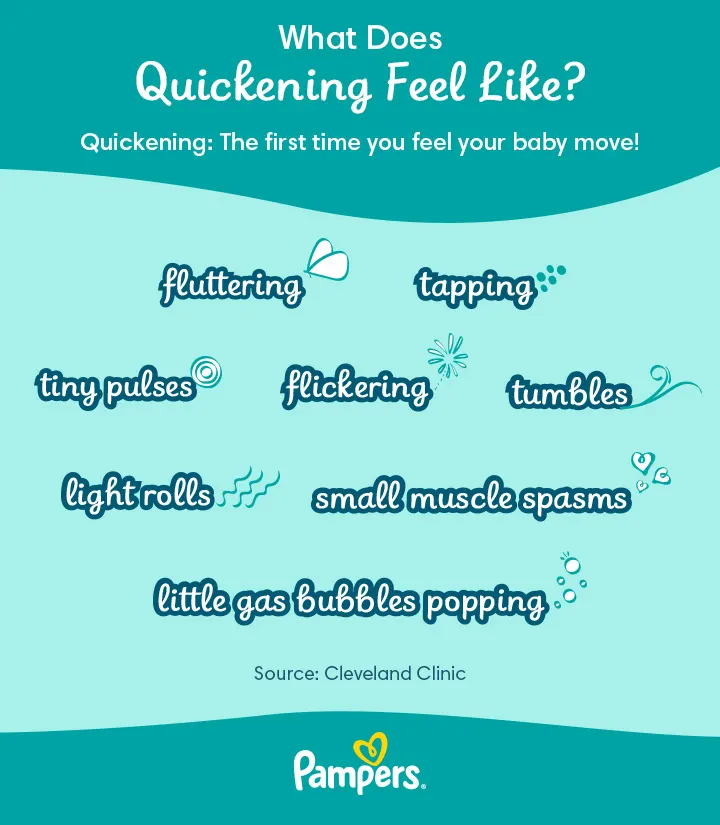
How Early Can I Feel Flutters?
You may feel flutters in your stomach as early as 13-16 weeks into pregnancy.
What Do Baby’s First Movements Feel Like?
Baby’s first movements may feel like gentle flutters or bubbles in the belly. Some describe it as a tickling or light tapping sensation. It’s a unique and joyous experience for expecting parents. These movements typically start around 18-25 weeks of pregnancy.
At What Month Will I Start To Feel My Baby Move?
Most women start feeling their baby move between 16 to 25 weeks of pregnancy.
Can You Feel The Baby At 4 Months?
Yes, you can feel the baby’s movements at 4 months. It’s a thrilling experience for many expectant mothers.
Conclusion
Feeling your baby move is an incredible milestone in pregnancy. It is a precious moment that you eagerly await. As your pregnancy progresses, you may start feeling those tiny flutters, kicks, and rolls. The timing of when you start feeling your baby move can vary from person to person.
While some may feel it as early as 16 weeks, others may not feel it until around 25 weeks. Remember, every pregnancy is unique. So, cherish the magical moments when you begin to feel your baby’s gentle movements, for it is a beautiful reminder of the miracle growing inside you. ” when do you start feeling baby move “

